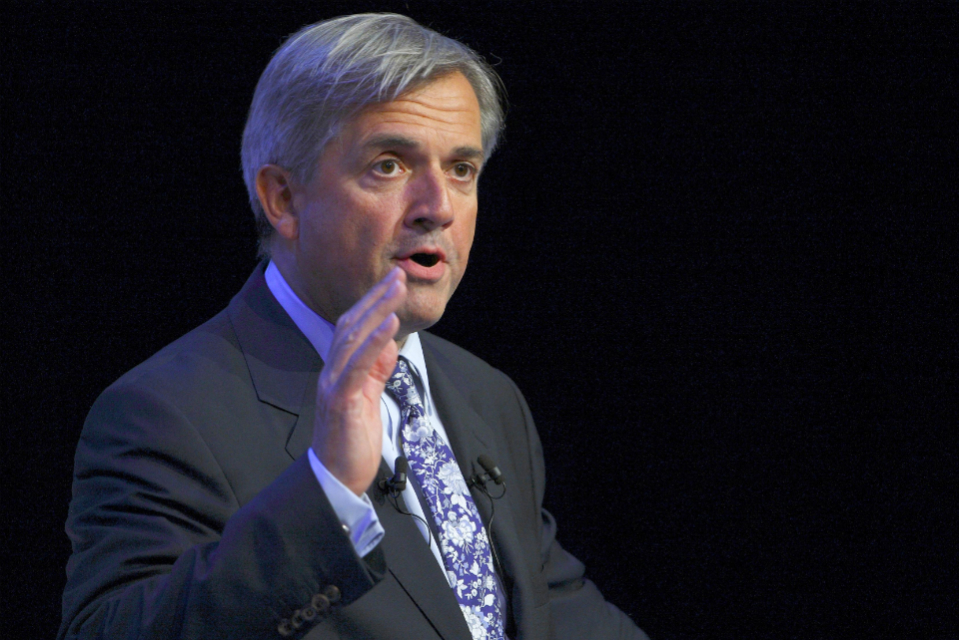The Rt Hon Chris Huhne MP speech to the Durban COP17 Climate Conference Plenary
Thank you, Mr President. One year ago, we brought these negotiations back from the brink. As the global economic crisis deepened, we turned…

Thank you, Mr President.
One year ago, we brought these negotiations back from the brink. As the global economic crisis deepened, we turned away from low ambition.
This year, we must back high ambition. Economic uncertainty may be dominating the headlines, but emissions are rising fast. Against dark skies, we must summon the strength to commit to a brighter future.
Nowhere is this more essential than here in Africa, the continent most vulnerable to climate change. For millions of Africans, climate change is not a matter of negotiating texts, informal informals or square brackets. It is a matter - literally - of life and death.
So here in Durban, we must signal that our objective remains a legally binding global deal.
Nothing else will provide certainty for the businesses and investors who are building the next generation of homes, vehicles and power plants. Nothing else will close the emissions gap, delivering the carbon cuts we need to keep global warming within 2 degrees. Nothing else will show our determination to meet the climate challenge as fairly and as fully as possible.
That is why the UK, with our EU partners, remains a firm advocate of a global legally binding agreement within the UNFCCC. We want all countries to commit now to a comprehensive global legal framework, and to complete negotiations on it by 2015 at the latest.
The UK remains fully committed to the Kyoto Protocol. We are proud of the Protocol and the part we have played in it; it is driving the low-carbon transformation in Europe. Together with the EU, we have clearly stated that we are willing to move to a second Kyoto commitment period, maintaining ambition and environmental integrity.
But to do that in isolation makes no sense. A second commitment period covering only the EU and two or three other developed countries would control less than 15 per cent of global emissions; some 85 per cent of global emissions would remain uncontrolled.
That would not provide the certainty that investors need; it would not close the emissions gap; it would not meet the hopes of Cancun; it would not help the poor and the vulnerable.
We need a clear roadmap to a wider agreement. If that roadmap cannot be agreed here in Durban, we will not agree a second commitment period of Kyoto.
Let me be absolutely clear about this. The roadmap and the second commitment period are part of the same package, the same route towards a legally binding global deal. They cannot be separated from one another, and we will not let them be. We recognise and are encouraged by the fact that the vast majority of countries here, developed and developing, share this view.
The UK’s commitment to tackling climate change is clear. We have adopted strict domestic targets for reducing emissions: a 50 per cent cut by the mid 2020s. We are meeting our fast start finance obligations: we have allocated more than £1 billion to date.
On Tuesday, I announced our package for Africa:
- £38 million for climate-resilient agriculture in Eastern and Southern Africa, helping 250,000 small-scale farmers
- £27 million for the Energy and Environment Partnership in southern Africa
- £15 million to support Ethiopia’s new national climate strategy
- £7 million for an adaptation and resilience programme in Kenya
- support through the Clean Technology Fund for low-carbon projects in Nigeria
- £30 million for the Least Developed Country Fund
- £10 million for the Adaptation Fund
- £85 million for the Pilot Programme for Climate Resilience
By the end of 2012 we will have met in full our pledge of £1.5 billion in fast start finance. And we already have committed financial support beyond the end of the fast start period.
We are determined to make the Green Climate Fund a reality and to develop long-term sources of finance. We must make progress on technology, adaptation, forests and MRV. We must move towards a common understanding of the size of the emissions gap, and how we can close it.
These are all steps on the road to a comprehensive global agreement. And this goal is not beyond our reach. Last year’s conference in Cancun showed what we can achieve when we display flexibility and the will to compromise.
If we continue to choose co-operation over conflict, we can show that all nations are indeed united by a common ambition: to protect our planet and our people from the dangers of climate change.
Thank you.